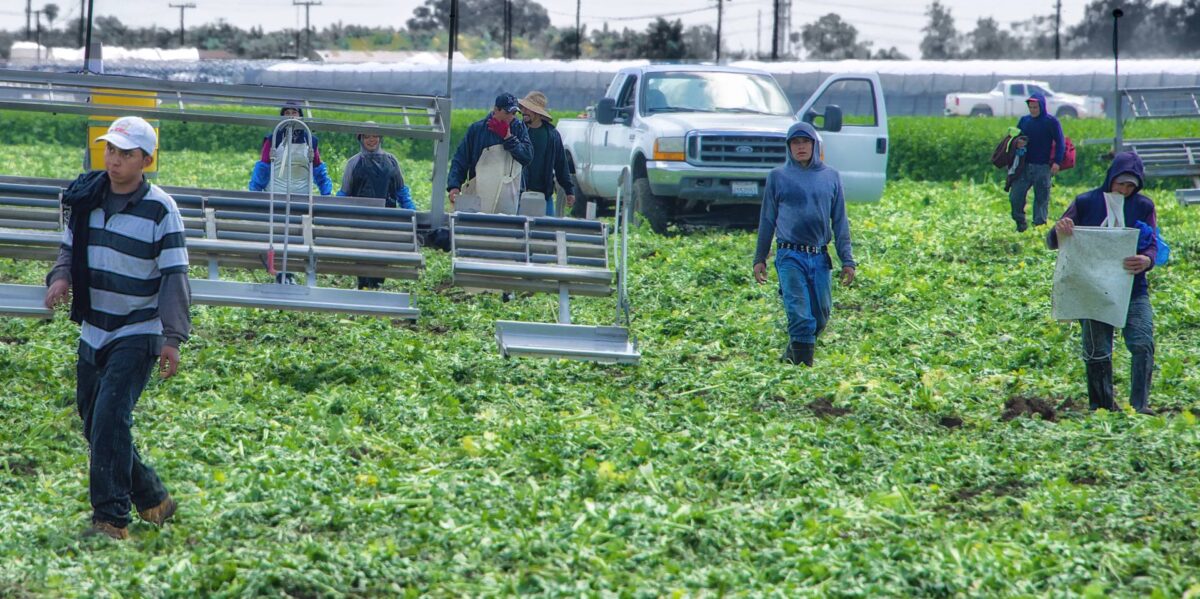Farm labourers in Ontario are facing health and safety concerns at the hands of surveillance technology, according to new research. PhD candidate at the University of Toronto, Olivia Doggett has recently completed a study on agricultural technology (agtech) and expects her academic article to be published next year.
Surveillance agtech is often used in greenhouses, Doggett explained. The technology can track how many boxes of product a worker has picked and how much time it took a worker to complete a task. Doggett said that this data is used to enforce performance quotas which causes undue stress.
“I’m sure you have had days where you want to work slower than others,” Doggett said. “Often because you’re not feeling so great. People are not given that permission and space when the performance expectation is so high, and measured relatively to others.”
After surveying over 100 farmworkers in southwestern Ontario and conducting numerous interviews, Doggett said that her research shows that surveillance agtech had the highest impact on farm workers’ conditions. Particularly, many workers reported negative attitudes toward surveillance and tracking technologies improving their health and safety conditions, quality of work, and ability to learn new professional skills.
While the specifics of the data Doggett collected are not yet publicly available, she said that the negative impacts of surveillance technology, particularly on workers’ physical and mental health and sociality are a clear trend that has come out of her research.
The National Farmers Union (NFU) wrote in a 2022 policy brief for the Government of Canada that the use of technology to surveil workers has unacceptable implications for privacy.
“The world’s largest farm machinery company, John Deere, is also investing heavily in big data applications and has entered into partnerships with seed and commodity trading corporations that exacerbate the power imbalance between farmers and the companies they deal with,” the NFU wrote.
The NFU questioned whether automation and technological advancement options are able to fulfill the expressed needs of farmers. The union noted that the current way of utilizing agtech promotes over work and strain.
Surveillance of farmworkers not new
The issue of intense surveillance of farmworkers is not new. Gabriel Allahdua, who worked as a migrant farm worker from 2012 to 2015, told rabble.ca that he saw surveillance technologies already in use when he was still working in a greenhouse. Doggett said that the issue today is that surveillance technologies are becoming more sophisticated.
As surveillance agtech develops, consequences for not meeting performance quotas become more precise. According to a 2020 report by the United Food and Commercial Workers (UFCW) one greenhouse punished the five “worst performing” farmworkers with no work or pay for two to three days. The UFCW published a photo of a computer screen with the performance data of farmworkers. While much of the photo is difficult to read, the difference between the fifth lowest performing worker and the sixth lowest performing worker looked as if it could be as little as 10 plants picked per hour.
The threat of losing pay has resulted in workers showing up for work while unwell which often causes physical strain, the UFCW reported. Even healthy workers may sustain injuries due to overwork in a greenhouse.
“Bodies aren’t machines,” Dogett said. “We can’t work the same all the time. Some might report that they received bad news from their families back home, are sick or maybe they’re injured. Yet workers would still be expected to maintain those same work rhythms.”
Doggett said the solution to this issue is to improve regulations on technology. She pointed to Bill 88 in Ontario as a step in the right direction. Bill 88 requires that all employers with 25 employers or more provide a description of how and in what circumstances employers electronically monitor their workers, and why these data was necessarily to be obtained through electronic monitoring. As workers’ performances are regularly inputted and tracked via RFID technologies in greenhouses, this means that employers should be providing workers with an electronic monitoring policy. From discussions with workers and labour organizations, Doggett says these policies have not yet been presented to many workers despite the bill’s implementation at the beginning of this year.
“That bill is actually still quite a long way away from protecting employees with data privacy,” Doggett said, “but even the act of them having to disclose what data is collected and how it’s being used is still a step in the right direction.”
Doggett said that one of the best ways people can fight the harms caused by surveillance agtech is to stand in solidarity with organized labour. She said this is especially important to do when surveillance agtech harms the potential for workplace organizing.
“[Performance tracking] does seem to have an impact on workers’ sociality,” Doggett said. “Because of the performance tracking, worker relations are impacted in a way that can reduce opportunities for collective action.”



